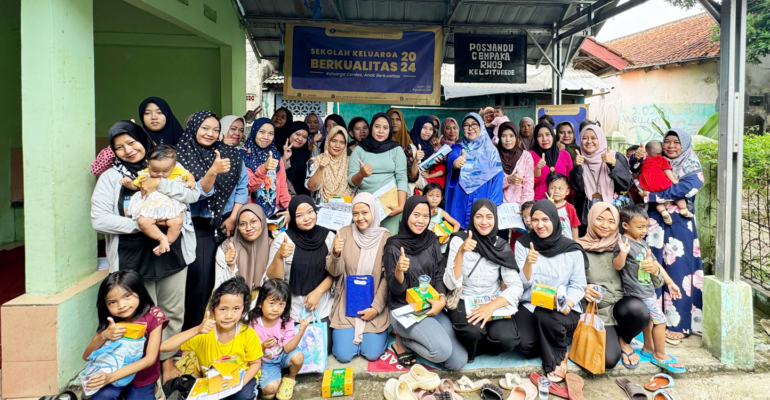IPB University’s School of Quality Families in Situgede, Psychology and Child Development Experts Explain the Growth and Development of Baduta Children

The Directorate of Agromaritime Community Development (DPMA) together with the Department of Family and Consumer Sciences (IKK) IPB University organized the first meeting of the School of Quality Families (SKB) in Situ Gede Village on 6/6. The event aimed to improve parents’ understanding and skills in supporting the growth and development of children under two years old.
The event featured guest speaker Dr Melly Latifah, an expert on Psychology and Child Development, lecturer at IKK IPB University. Dr Melly discussed various important aspects related to the characteristics of young children, including physical, cognitive, social and emotional development.
“A good understanding of these characteristics is very important for parents to be able to provide an environment that supports the optimal development of children,” she said.
One of the main focuses of the meeting was how to create an optimal learning environment for young children. Dr Melly emphasized the importance of balanced nutrition, psychosocial stimulation, good sanitation, and a safe environment. All of these factors greatly influence a child’s physical and mental development.
In this meeting, Dr Melly introduced seven kinds of learning stimuli that should be given to infants and young children, namely gross movement, fine movement, passive communication, active communication, thinking intelligence, independence, and social skills. “All of these stimuli should be provided in a balanced way to support a child’s overall development,” Dr Melly explained.
She provides practical examples of how parents can implement these stimuli in their daily activities. “When children play together, they learn how to share, take turns and cooperate. These activities teach children the importance of empathy, how to deal with conflict, and effective communication skills,” said Dr Melly.
Dr Melly also explains the importance of building attachment between parents and children. Good attachment between parents and children is considered an important basis for positive personality development. “Strong attachment can help children feel safe and loved, which in turn will support their emotional and social development,” she said.
It is hoped that through this activity, the participants can apply the knowledge gained in their daily lives, so as to create an environment conducive to the growth and development of healthy and happy children (IAAS/Hap)



